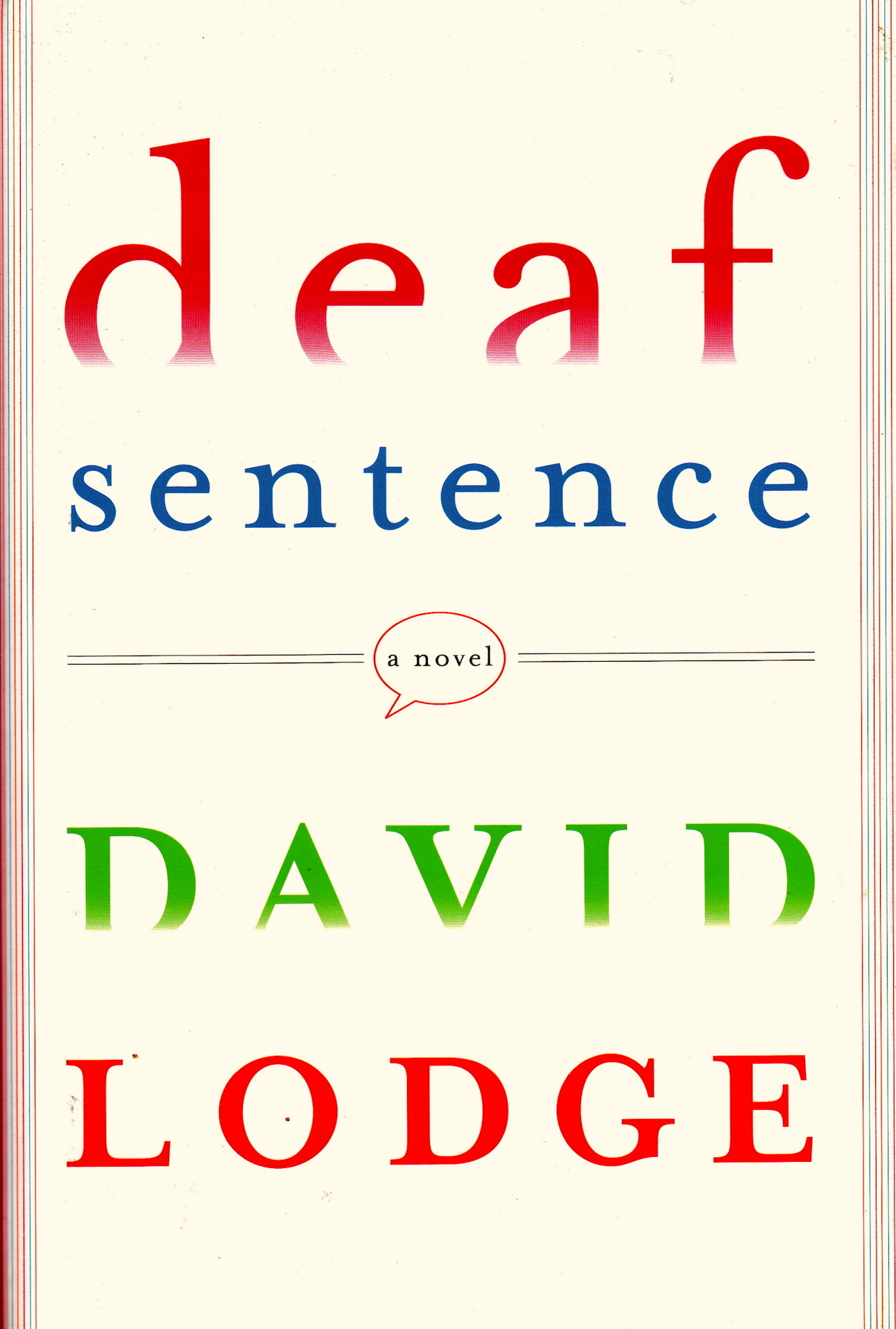When the university merged his Department of English with Linguistics, Professor Desmond Bates took early retirement, but he is not enjoying it. He misses the routine of the academic year and has lost his appetite for research. His wife Winifred's late-flowering career goes from strength to strength, reducing his role to that of escort, while the rejuvenation of her appearance makes him uneasily conscious of the age gap between them.
The monotony of his days is relieved only by wearisome journeys to London to check on his aged father who stubbornly refuses to leave the house he is patently unable to live in with safety.
But these discontents are nothing compared to the affliction of hearing loss, a constant source of domestic friction and social embarrassment, leading Desmond into mistakes, misunderstandings and follies. It might be comic for others, but for the deaf person himself, it is no joke.
It is his deafness which inadvertently involves Desmond with a seemingly personable young American female graduate student whose wayward and unpredictable behaviour threatens to destabilize his life completely.
Comment: I saw this book at the library and since I've previously enjoyed other books by the author, I've decided to take a chance on this one, which wasn't familiar to me.
In this novel, we follow protagonist Desmond Bates, a retired university professor who happens to also be deaf. His hearing has suffered for years and while he now has a hearing aid, he still struggles and he has to live with the fact it does influence his social life and even his family interactions. He is also concerned because his 90 something father isn't well to live alone anymore but is too stubborn to think about leaving his house. Since his life is now so predictable and retirement not as rewarding as he imagined, his days are very monotonous and probably that is why he sees himself in the middle of an imbroglio with American student Alex, who wants his help with her thesis. The problem is how to get rid of helping her...
I've read eight books by this author and some were amazing, especially the ones whose setting is the academic world, but others didn't impress me as much. This one was a random choice since I wasn't even aware of it and if not for the library I'd probably not look for it. I'm also glad it's another book which features the academic reality in a way because it seems that, for me, that is the setting that makes me appreciate the author's work better.
I liked the protagonist, who tells his version of things in the first person. From the start, the idea is that Desmond is sharing his thoughts in a sort of journal but the graphics on the page aren't that specif and to me this felt just like any other regular novel. Desmond is disappointed with retirement, because his interests and goals for this period of his life aren't as exciting to work with as he imagined. He claims a huge part of it is his struggle with his deafness, that it does affect his way to interact with others and, ultimately, how he is able to enjoy even the little things.
I think the author did a good job portraying the difficulties of a person who slowly lost his hearing and how that affected him, physically but especially mentally. The author's writing style is also known for the humor and that is also something we can see here, I did laugh because of some passages. It was also interesting how the author also does some commentary on the stigma associated with someone who is deaf and on how easy it is to joke with those with this condition or how they find themselves the target of jokes, but all this was done well enough so that while it's something obvious, it still didn't detract from the fictional plot.
 |
| Portuguese cover |
Desmond was, conveniently, a professor of linguistics and there's enough content regarding that here, which I liked. I suppose for those readers who only wanted to focus on the fictional plot, these themes might not be as alluring but to me they were fascinating.
As for the plot, well, it's a set of confusion and miscommunications and weird characters and in the middle of this, Desmond must deal with many problems. I found the reading easy and fluid and while not everything was as silly-cute to me as the author probably intended, it was still fun to follow. The whole nuisance caused by the American student was sometimes too funny, others too sad, but it did give us another perspective of Desmond. The resolution of this part of the story was a bit vague, however. More serious were the issues regarding his father, and this too went a path which isn't surprising but still allowed for certain types of reactions from Desmond and the other characters.

No comments:
Post a Comment